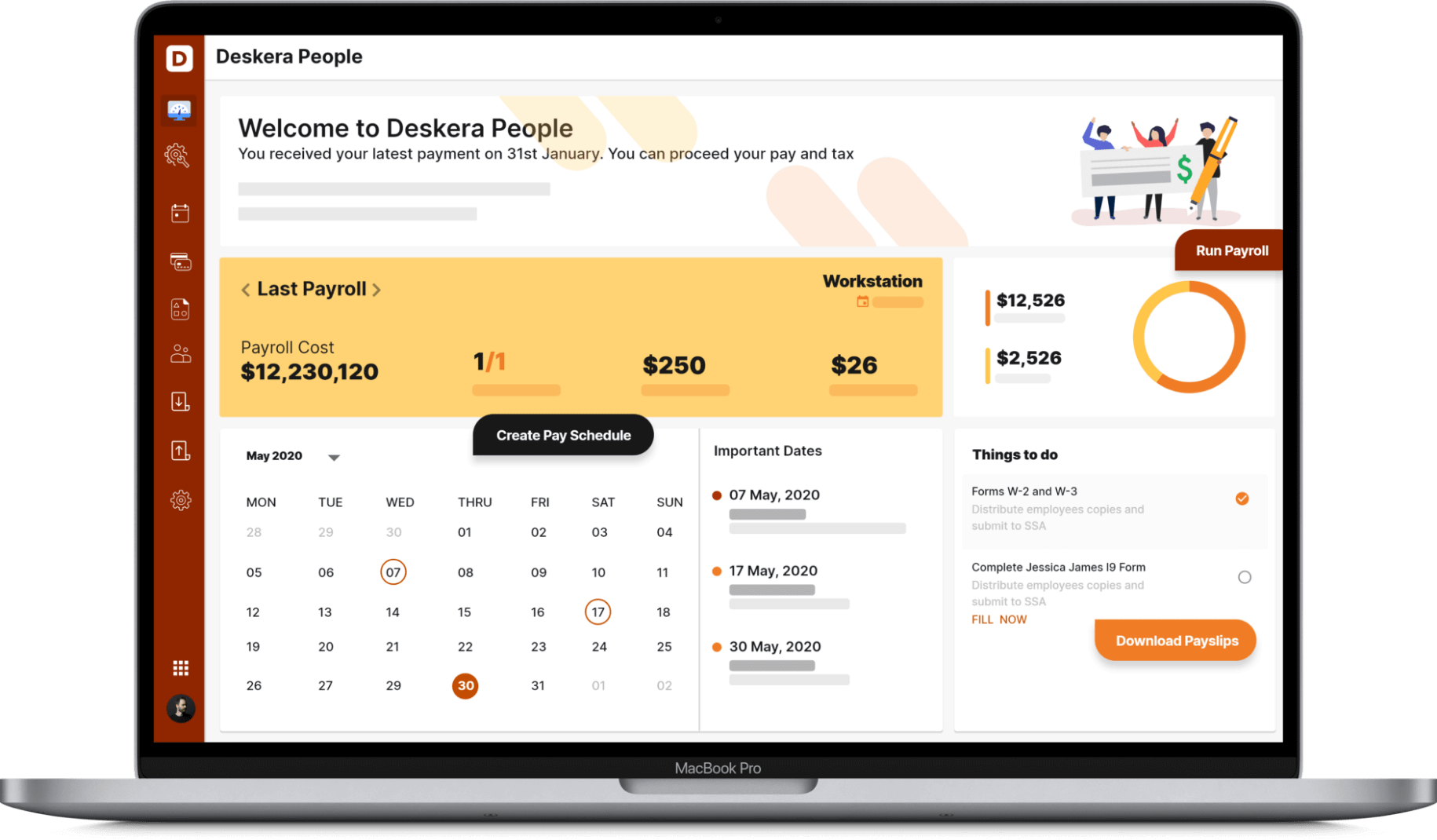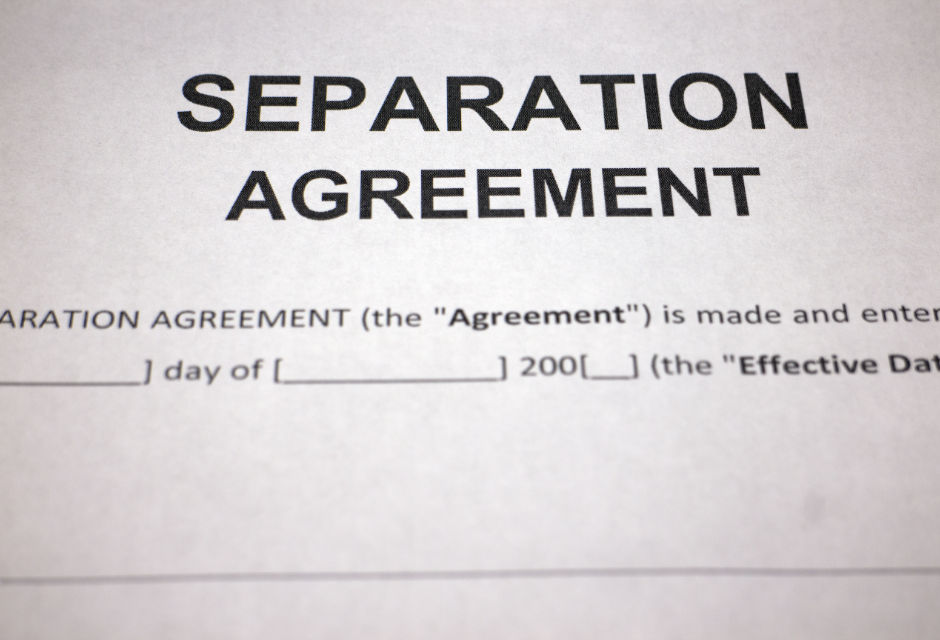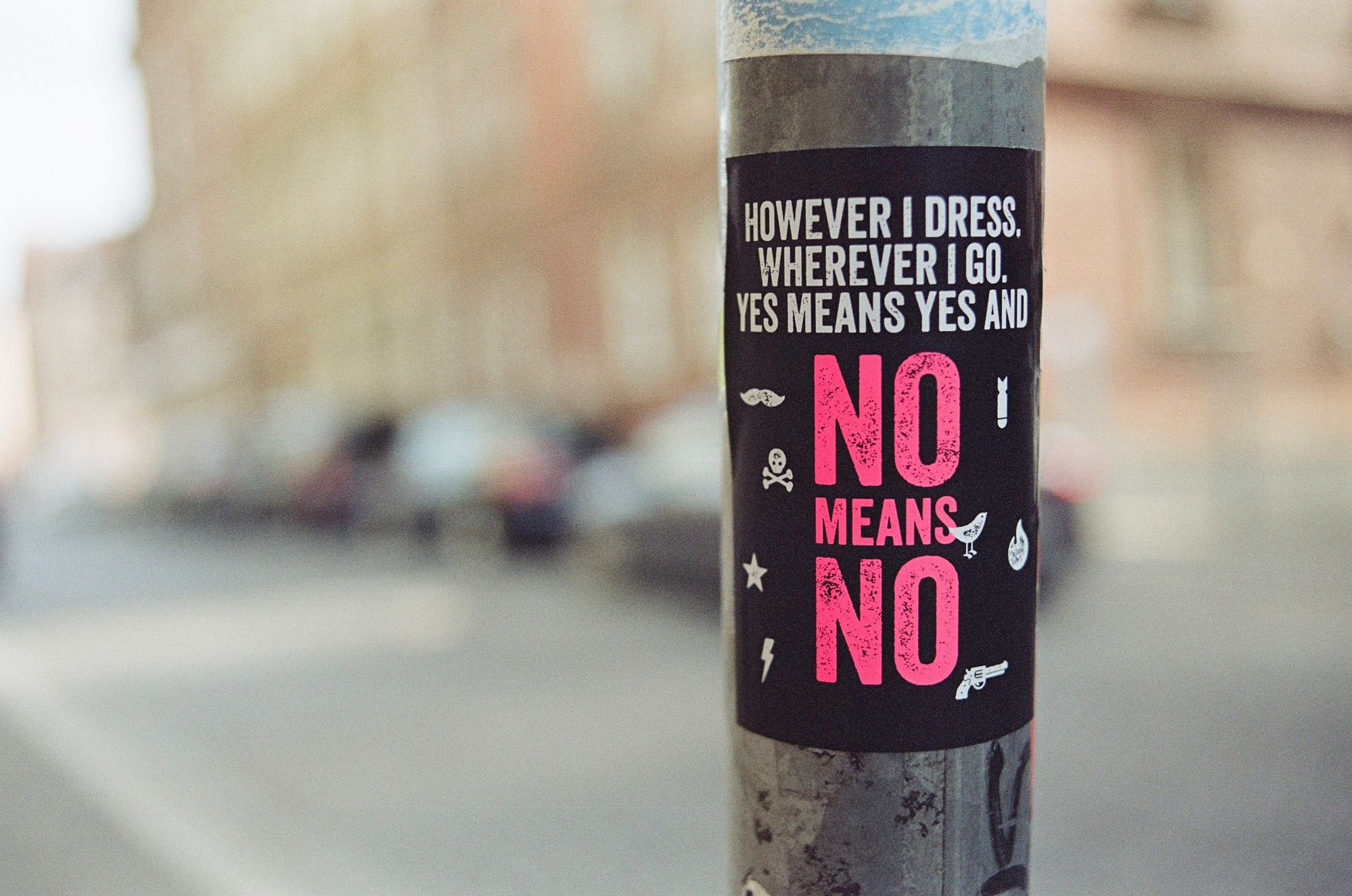A 2018 survey brought to light how half of the USA adults felt that when it came to sexual harassment and assault in the workplace, 50% of the time, men got away with it, while 46% of the time, female accusers were not believed. These two are the two major problems when it comes to sexual harassment.
This survey also highlighted notable gender gaps in responses to these two questions. This is because while 52% of the women said that women not being believed was a major problem, only 39% of the men said the same. In the case of men getting away with sexual harassment as a major problem, 55% of the women found it to be a major problem, while only 44% of the men felt the same.

In the same survey, it was also found that 27% of men and 59% of the women had personally been a victim of unwanted sexual advances or physical or verbal harassment of a sexual nature, whether in or outside of a work context. A third of the Americans also said that 34% of the accused men were fired by the employers before finding out all the facts, while out of the total accusations by women, 31% were false.
A recent survey in 2020 highlighted how a majority of the Americans, i.e., 57% of the Americans, felt that the USA had not progressed enough to ensure equal rights for men as well as women. Out of these 57% of the Americans, 77% found sexual harassment as a major obstacle to women having equal rights with men, with 82% of the women supporting this, in contrast to 72% of the men supporting it.
This thus highlights the need to have mandatory sexual harassment training in the cities and states of the USA. New York is one such place where sexual harassment training has been made compulsory through the Local Law 96 of 2018.
According to this law, employers with 15 or more employees are required to conduct annual sexual harassment prevention training for all employees. In fact, the New York State Law requires that employers of one or more employees conduct sexual harassment prevention training for all employees.
This article will take you through all that you need to know about the mandatory sexual harassment training in New York. The topics covered are:
- Introduction to the Mandatory Sexual Harassment Training in New York
- New York State Sexual Harassment Prevention Training Requirements
- New York City Sexual Harassment Prevention Training Requirements
- Consequences of Non-Compliance with New York’s Sexual Harassment Laws
- FAQs
- How Can Deskera Help You?
- Key Takeaways
- Related Articles
Introduction to the Mandatory Sexual Harassment Training in New York
It was on August 12th, 2019, that New York Governor Cuomo signed a package of anti-discrimination and anti-harassment measures (AO8421). This package changed the laws for the New York State harassment training requirements by huge measures.
According to this package, each employer is obliged to provide its supervisors and employees with annual sexual harassment training in New York State and New York City.
However, there are differences between the state laws and city laws here, and depending on where your company is located, you would have to understand them in order to ensure that you are complying with all the applicable laws. For example, if your company is located in New York City, then you will have to fulfill all the requirements at the state as well as city level.
As a business, you should use a sexual harassment training program that is up-to-date. This will ensure that you are complying with all the updated laws and regulations about the same. It is vital for you to do so because failing to obey even a tiny part of any of these new yet ever-changing laws might result in massive lawsuits, negative publicity, and hefty compliance fines.
This would have a wider impact on your business with a negative impact on your customer loyalty, customer retention, and, therefore, your revenue, gross profit margin, and net profit ratio.
New York State Sexual Harassment Prevention Training Requirements
As per the New York state laws, regardless of their size, every employer in New York or that has employees working in the New York State is obliged to provide approved sexual harassment prevention training.
While the conditions for a sexual harassment prevention training program are constantly changing, one of the best ways to still manage to comply with them is by using a sexual harassment training company that tends to be up-to-date and whose program exceeds the requirements of even the most recent laws.
However, some of the key New York State model sexual harassment training requirements are:
- It should cover an explanation of what sexual harassment is. This should be in accordance with the meaning issued by the Department of Labor and which also complies with the New York State Division of Human Rights. It should also educate your employees on what is considered as sexual harassment in New York.
- Your company’s sexual harassment policy should be in line with New York State’s requirements.
- The sexual harassment training program should also include examples of unlawful sexual harassment.
- The sexual harassment training program should also cover information regarding the federal and state statutory provisions on sexual harassment. It should also share the remedies available to victims of sexual harassment.
- The sexual harassment training should also share and educate the employees about their rights of redress and all available court forums for adjudicating complaints.
- Educating about what is considered as appropriate behavior and processes of supervisors and their responsibilities should also be a part of the sexual harassment training.
Who Has to Take New York State Training?
A New York State employee is defined as any worker regardless of their immigration status. In fact, it also does not matter if the employee is exempt, non-exempt, part-time, seasonal, an intern, temporary, remote worker, or a freelancer. As long as they interact with the New York employees, they have to take the New York State sexual harassment training.
In fact, in some of the industries like professional acting, where minors are allowed to work, it is mandatory for even them to take the sexual harassment training. However, in such cases, the employers may choose to simplify the training while also complying with all the state requirements.
Also, while organizations like agencies and unions may opt for giving sexual harassment training to their workers, the sexual harassment-related laws have not made it mandatory for them to do so. This, however, does not change how the employers in New York State will continue to be liable for their workers’ behavior, and it is their responsibility to make sure that they are well trained on government as well as company’s harassment policies.
Government Contractors, Vendors, and Consultants
If you are a private company that is providing goods to the New York State government or state agencies by bidding on contracts, then it is mandatory for you to certify that you have a sexual harassment policy. Only after certifying this would you be able to do business.
Additionally, you would have to make sure that you provide sexual harassment prevention training even to your out of the state employees, else you would be fined for failing to do so.
In fact, in order to be compliant as a contract or bid, you would have to state specifically, “By submission of this bid, each bidder and each person signing on behalf of any bidder certifies, and in case of a joint bid, each party thereto certify as to its own organization, under penalty of perjury, that the bidder has and has implemented a written policy addressing sexual harassment prevention in the workplace and provides annual sexual harassment prevention training to all of its employees.”
On February 8th, 2020, the New York State Human Rights Law (NYRHL) started applying to all employers based in the state. Through this law, the behavior of contractors, subcontractors, freelancers, vendors, or even outside consultants to you (a New York employer) became a legal liability of all the businesses.
New Hires
As per the New York State final guidance’s suggestion, all the new hires should receive sexual harassment training at the earliest. Early training is suggested because you, as an employer, would be held liable for the behavior of your employees.
However, if in case your new hire can prove that they have already received proper up-to-date training through his or her previous employer, then you are obliged to ensure that they get their training again in a year, before their annual due date.
New York State Training Must Be Interactive
Irrespective of whether your sexual harassment training is online or in person, what remains the core rule is that it has to be interactive. An interactive sexual harassment training is one where the employees are able to participate in the same through any or all of these means:
- Selecting correct answers during a test
- Being able to ask a question and get an answer for the same in a timely manner
- Giving employees a feedback survey after they have completed their sexual harassment training
- In the case of in-person or live training, the presenter asks questions to the employees while also giving them time throughout the presentation to ask questions.
Hence, if you choose a company to give sexual harassment training to your employees, you should ensure that their training structure and curriculum should match the above-mentioned requirements.
Frequency and Due Date for New York State Training
Usually, the New York State sexual harassment training deadline is one year after your employee or employees have taken a test, as the New York State law requires the employees to be trained once a calendar year.
Record Keeping
So far, the businesses are not obligated to keep signed copies of acknowledgment forms for the harassment policies. This is recommended in case your company is taken to court. Also, your business is obliged to provide proof that your employees have had proper and up-to-date sexual harassment prevention training.
New York City Sexual Harassment Prevention Training Requirements
If your company is located in New York City, then you would have to comply with the specific regulations of New York City as well, which can vary slightly from those of New York State. Some of the key New York City model sexual harassment training requirements are:
- It should include an explanation of sexual harassment and how it is a form of unlawful discrimination under New York Human Rights Law and as per the state and federal sexual harassment requirement laws too.
- It should include a description of what is considered as sexual harassment. For better understanding, this should be accompanied by examples of behavior.
- It should teach how to engage in bystander intervention.
- It should also inform about the internal complaint process around harassment available to employees.
- It should also inform about the complaint processes available through the New York City Commission on Human Rights, the Equal Employment Opportunity Commission, and the New York State Division of Human Rights, as well as their contact information.
- The training program should also explain retaliation and why it is prohibited under the law. This should also be accompanied by examples of activities that are protected against this behavior.
- It should also highlight the specific responsibilities of your managers and supervisors to prevent sexual harassment and retaliation. This should also include measures that they can take to appropriately address employees’ sexual harassment complaints.
- The sexual harassment training program should also include a signed acknowledgment form that confirms that each employee had completed his or her training for the same.
- Lastly, the sexual harassment training program should also include a written sexual harassment prevention notice at the time of the hire.
Who Has to Take New York City Training?
As per the rules, the New York City sexual harassment training needs to be taken and completed by the whole workforce of your company, including employees, interns, remote workers, freelancers, and contractors, if they work:
- Over 80 hours during the year as well as
- 90 days or more over the same year
In case if your company works with government contractors, then you are not legally responsible for providing them with sexual harassment training on the New York City level. However, the contractors will have to share their harassment prevention policies with you before they can work with you.
New Hires
According to the New York City laws, employees must be imparted sexual harassment prevention training after their probation period of 90 days ends.
As per the same laws, your new employees must receive a written sexual harassment prevention notice as soon as you hire them and every time they complete their annual training. This notice must include:
- Your company’s sexual harassment prevention policy.
- All the information shown in your chosen sexual harassment training program.
However, what you need to keep in mind here is that the New York State laws hold you liable for your employees’ behavior as soon as you hire them. Also, this applies not only to your employees but also to your interns, contractors, and freelancers.
Sexual Harassment Training Must Be Interactive
According to the New York City law, the sexual harassment training must be interactive or participatory in the ways laid down in the laws. Here, however, the New York City laws match the New York State laws because the sexual harassment training that you enroll your employees in must ask questions, have their questions answered in a timely manner, and collect feedback from the trainees after completion.
Sexual Harassment Training Due Date and Frequency
According to the Stop Sexual Harassment in New York City Act, all employers with more than 15 employees are obliged to provide annual proofs of proper sexual harassment training imparted to their employees by the end of the year on December 31st.
If, in case, any of your employees took the sexual harassment training test already, then they should get the next proof before their annual due date.
Thus, similarly to the rules at the state level, sexual harassment training needs to be provided once every calendar year.
Record Keeping
Unlike at the New York State level rules, at the New York City level, you are required to keep a record of all the signed employee acknowledgment forms of your company’s policies on harassment prevention.
You should keep these records in a file such that if the need arises, they are ready for the commission inspection in case of a lawsuit.
Consequences of Non-Compliance with New York’s Sexual Harassment Laws
Sexual harassment is a violation of the USA Federal Government, New York State, and New York City Local Laws. Thus, as an employer who is operating in New York State and City, you would be subjected to a variety of multi-tiered government and legal fines if you, your company, and its employees have not complied with any rules and regulations associated with sexual harassment.
At the federal level, sexual harassment at the place of work breaks the law- Title VII of the Civil Rights Act of 1964 as a form of “sex discrimination,” and you would thus be subjected to investigation and potential legal action by the EEOC. If any violation is found, then the agency may file a federal court case.
As an employer, if you fail in preventing sexual harassment at work, then you would be violating New York State labor law 201-G. Considering the way the provisions are structured, each employee may represent more than one violation of the law. The fines in such cases start at $100 for the first violation and snowball for subsequent violations.
A mid-sized company could hence end up having tens of thousands of dollars as an expense payable in government fines. The other expenses that might be incurred in such scenarios and therefore hamper your cash flow are legal fees and payouts to victims if the case goes to court.
In case you are an employer in New York City, then a “willful violation” of any law related to sexual harassment will lead to civil penalties of up to $250,000. A willful violation is one where you could have safeguarded your company against sexual harassment scenarios by providing training but failed to do so.
In such cases, the New York City Commission on Human Rights has the authority to assess the emotional distress damages and other remedies to the victims while also requiring you- as an employer to undergo training, community service, and other civil and educational penance.
Note: Your company would end up being a victim of mounting losses in the form of good workers, failure to retain top talents, extreme financial expenditures, loss of reputation, and being identified as a company that does not comply with laws if you do not ensure due diligence with proper training and ends up violating sexual harassment laws.
The impact here could be so huge that a company planning to launch its IPO might not be able to have a successful IPO, a company which had higher net profits sees a shortfall in the same, a company looking forward to expanding its operations, would be unable to, and sometimes a company shutting down entirely.
However, you can save your company from such severe penalties if:
- You take immediate, actionable measures to resolve and eradicate inappropriate conduct at the place of work as soon as you become aware of it.
- You commit to taking preemptive and preventive measures against allowing sexual harassment before a hostile work environment even has the chance to materialize. For example, by giving the best sexual harassment prevention training to your employees, you would be able to prevent violation of laws, workplace stress, and a bad work environment.
FAQs
This section of the article is aimed at helping you combat sexual harassment by answering some of the frequently answered questions.
What types of records should the employers maintain to verify compliance?
While no signed acknowledgment of having read the policy is required, employers are encouraged to keep a copy of the signed acknowledgment as well as training records. These records might help employers in addressing any future lawsuits or complaints.
Is this law applicable to New York City employers? Does the mandatory training requirements of New York City meet those of the New York State Law?
Yes, this law does apply to all the employers in New York State, including in New York City. To ensure that the NYC-based employers can meet compliance with New York City and New York State training requirements and laws, the New York City Commission on Human Rights partnered with the New York State Division of Human Rights and the New York State Department of Labor. To do so, you can use the online training provided by the New York City Commission on Human Rights.
Has New York State made the resources available for training in languages other than English?
Yes, the sexual harassment training materials have been translated and made available in Spanish, Korean, Russian, Italian, Polish, Bengali, Haitian-Creole. In fact, additional languages may be added in the future.
Are employers required to provide notice, policy, and training in languages other than English?
Yes, the employers must provide employees with these materials in both English and in the employee’s primary language, if it is Spanish, Korean, Chinese, Polish, Haitian-Creole, Italian, Russian and Bengali. While model materials for the same are available online, it is recommended that employers take up the lead and provide a policy and training in the language spoken by the employee as they would be held responsible for the conduct of their employees.
Can the required sexual harassment prevention notice be delivered digitally?
While it is mandatory to give the sexual harassment prevention notice in writing, it can be given in print or digitally (for example, via email). Additionally, the notice must link to or include as an attachment or a printed copy of the policy and training materials.
What is considered as training materials as part of the notice?
The training materials include any printed materials, scripts, Q+As, outlines, handouts, PowerPoint slides, etc.
Can the training materials be delivered through software or video?
If you are using model state materials or other training materials available online, a printed or electronic copy or a link to such materials is sufficient. However, if this is not so, then, in that case, you should make sure to provide the information effectively through varied means like handing out print-outs or by sharing links to training materials, scripts, PowerPoint slides, etc.
Is the employer responsible for training third-party vendors or other non-employees who interact one-time or regularly in an office located in New York State?
No, an employer is not responsible for training them; however, they should make sure to post their policy in a highly visible area. This will communicate their efforts as a responsible employer.
What should you do if a temporary employee is being harassed by an employee of another company?
In such a case, you should inform both the company as well as the temporary employee’s firm. Additionally, if you are able to take action in order to prevent and end such harassment as per your policy, then you should take it.
How can employers provide their policies to employees?
Employers must provide their policy to the employees in writing at the time of hiring as well as during each annual training. This is to be done in the form of a notice that must also include sexual harassment prevention training materials.
Also, it can be shared either electronically or in a printed version. In fact, if you make its copy available on the work computers, then your employees should be able to print a copy of the same for their own records.
Can an employer deviate from the investigative procedures that it has already established if those procedures are similar but not identical to those provided in the model? How can he or she do so while continuing to comply with the law?
Yes. However, the investigative procedures that the employer is planning to use should be mentioned in the employer’s policy.
Is it necessary for the complaint form to be included in full in the policy?
No, it is not necessary. However, the employers should mention where the complaint form can be found, for example, on the company’s internal website.
What is the minimum number of training hours that employees must complete each year?
As long as the employees are receiving training that meets or exceeds the minimum standards, there is no fixed number of training hours.
Suppose I am an employer based in New York State but have employees who work only in other states. Do I need to train them?
No, you are not required to train these employees. However, all the employees who work or will be working in New York State need to be trained. However, if any of your employees work a portion of their time in New York State, they will have to be trained despite them being based in another state.
Are minor employees, like, for example, child actors, required to take sexual harassment training?
Yes, while it is mandatory to impart sexual harassment training to minor employees, if you have employed someone under the age of 14, then you may choose to simplify the training and policy while still meeting the minimum requirements.
Is a live trainer a must for the sexual harassment training? Is certification mandatory for the trainer?
The law does not make live trainers mandatory for sexual harassment training. However, a live trainer may appear in person or via phone, video conference, etc. As for the certification, the state does not currently certify or license training providers.
Do managerial/supervisory roles come with different training requirements for employees?
Yes. As an employer, it is your responsibility to make your employees aware of the extra requirements for those who are in managerial/supervisory roles. These additional requirements are addressed by the model training, or you may choose to provide additional or separate training to supervisors and managers.
What if, despite your best efforts as an employer to make the sexual harassment training available, an employee fails to undertake it?
In such cases, you can take appropriate administrative remedies to ensure compliance.
Are businesses required to pay workers for the time spent in training? For example, sexual harassment training given during the onboarding process before their actual assignment begins?
As per the federal regulations like 29 CFR 785.27-785.32, which the employers must follow, the employer-provided training time is to be counted as regular working hours.
Are there sections in the model training materials that are not expressly required under the mandatory laws?
No, but they are strongly recommended. Also, employers are encouraged to exceed the minimum sexual harassment training requirements.
How will the sexual harassment prevention training time impact the Hospitality Wage Order’s 80/20 rules?
Just like other mandatory training, this does not impact the percentage in the Order and hence should be treated in line with other employer training. This means that either it should be added in line with the existing proportion, or it should be excluded from the 80/20 calculation.
How Can Deskera Help You?
In regards to the mandatory sexual harassment training in New York, one software that will help you ensure your compliance is Deskera People. Through Deskera People’s employee grid, you would be able to view all the essential information of your employees at a glance.

Additionally, the employee grid also comes with embedded sorting options in each grid column, making it convenient and easy for you to get the information that you want, like, for example, the status of sexual harassment training of a certain employee and their due date.
Key Takeaways
The compliance to sexual harassment laws has become more complicated than ever, not just because, as an employer, you are more liable than ever before in history, but also because just between August 12th, 2019 to August 12th, 2020, the laws have changed five times.
These changing laws and the threat of legal liability, being sued, fined, or exposed to negative publicity, have made employers more stressed than ever before.
To combat it while also ensuring their compliance, you should ensure that you are meeting all the legal obligations when it comes to sexual harassment training and even exceeding the bare minimum standards for the same. Additionally, if you rely on an external company to carry out the training, make sure that they are following the updated laws.
Managing all this data, as well as records like signed acknowledgment, completion certificate of sexual harassment training, etc., can be automated as well as simplified through Deskera People.
Note: As of August 12th, 2020, a victim of sexual harassment has a time frame of three years to file a lawsuit against an employer.
An added yet crucial benefit of giving proper sexual harassment prevention training to your employees is that you would be able to give them the safest work environment, which in turn will give you a maximally productive workforce that will lead to high net profits, healthy financial KPIs and financial statements, and ever-improving performance of business metrics.
Related Articles














